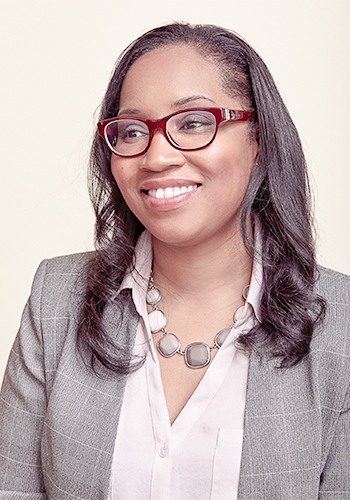
As part of the fall 2022 election series, the Muhlenberg political science department hosted a webinar with Franita Tolson, J.D., a professor and the George T. and Harriet E. Pfleger Chair at the University of Southern California Gould School of Law. The event focused heavily on the 1965 Voting Rights Act and the recent trend of increasing voting restrictions across the country.
When talking about the Voting Rights Act, Tolson said that it “fundamentally changed the political complexion of the South.” This policy allowed Black Americans to elect their preferred representatives for the first time in a post-Jim Crow South.
“African Americans went from being in the single digits in terms of being part of the electorate to being in the double digits.”
Franita Tolson
The Voting Rights Act also updated regulations for congressional districts, requiring states to draw a certain number of districts with majority minority voters so that they would have a voice in government. Where prior to the Voting Rights Act, states Black voters encountered a number of barriers such as literacy tests and rigged district maps, the new guidelines guaranteed a vote that mattered. However, as Tolson explained in the webinar, those mandates ensuring equal representation and opportunity were hard to enforce and are now under threat.
Tolson explained that “when you say you have a right to vote, it is a right to cast a ballot and have it count, but it is also a right to a vote that is undiluted. When we draw voting districts, it is possible to draw districts in such a way that someone’s vote doesn’t count. For example, if you make a district 70 percent African American and 30 percent white but the preferred candidate of the African Americans only needs 56 percent of that vote to win, you wasted 14 percent of those votes.”
Consolidating minority voters into a few districts such that their sway on the election is diminished is called district-packing. Tolson referenced a current case under review in the Supreme Court where a Florida district had planned to pack its district in violation of the Voting Rights Act. The Court decided to implement a short term freeze until they could revisit the case. However, given the current political demographic of the Supreme Court, future efforts to curb the effects of district-packing could be in jeopardy. With the midterm elections coming up this November, and the 2024 presidential election just two years away, voter suppression will continue to be a pressing issue, both for politicians and for the Supreme Court.
Despite continued threats to the integrity of American democracy, Tolson believes that students should not be discouraged by the new threats posed to minority voters. “Democracy is always [going to] work in progress, and it may feel discouraging, but the reality is that it has always moved at a slow and steady pace. Prior to the 1960s, most states did not function like a democracy. This is something that we need to fight for, not something that we have to take back. This is not the end; it can be a new beginning.”
Ultimately, Tolson says, “Democracy is a choice, and it always has been,” and our decision to uphold it or let it fade “begs the question of who do we want to be.”
“I found the part about gerrymandering particularly fascinating. In a political science class in high school I drew a congressional map of Pennsylvania and I was glad that she talked about voting districts.”
Layla Siahatgar ‘25
Maya Brooks ’24 shared those sentiments saying, “Franita Tolson went into depth about the different ways people can be disenfranchised when they vote. She explained the power and undemocratic nature of gerrymandering, where [an] individuals’ vote effectively doesn’t count, and touched on how America is not a democracy, rather a republic with democratic norms. We have to ask ourselves, do we want to be a republic or a democracy?”
Matthew '24 is a philosophy and political thought major on the pre-law track.





















